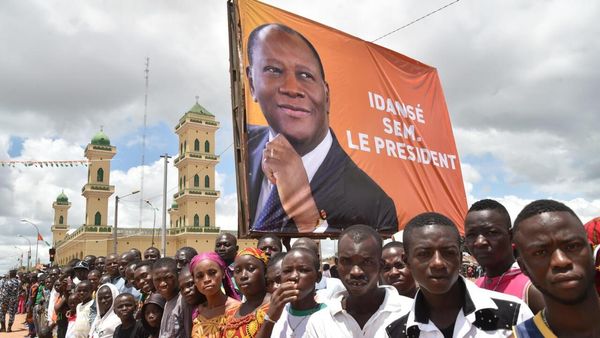
The Liberal Party’s biggest problem, unmentioned in the review of the 2022 election result by Senator Jane Hume and Brian Loughnane, is that young people aren’t voting for it.
It has a problem with women as well, of course, but millennials are not voting for it and they are no longer getting more conservative as they get older, which means that conservative parties face inexorable long-term oblivion.
The Liberal Party has become a retirement village for male baby boomers like me, and like all residents of retirement villages, we’re not long for the world.
That would be fine if Winston Churchill’s quote were still true: “If a man is not a socialist by the time he is 20, he has no heart. If he is not a conservative by the time he is 40, he has no brain.”
Whether or not Churchill actually said that, it has long been a truism of politics that people tend to get more conservative as they get older, but that’s not true any more.
The Coalition’s problem is summed up in these two charts:
COALITION VOTE BY AGE, 1967 – 2022

MILLENNIAL VOTING

The first chart shows that the Coalition vote among under 35s has gone from about 60 per cent in 1967 to less than 20 per cent today, and the second shows that those born between 1981 and 1996 are much less inclined to vote for the Coalition now than they were 20 years ago – 40 per cent versus 25 per cent.
At the 1966 election, the Coalition’s primary vote was 50 per cent and Labor’s was 40 per cent. Harold Holt won 82 seats and Arthur Caldwell 41; it was a landslide, the Coalition’s eighth victory in a row, and as the above chart shows, Holt got all age groups about equally.
In 2022 the primary votes were 35.7 per cent Coalition and 32.6 per cent for Labor, its lowest since 1930.
But the problem for the Liberals is that progressive parties and left-leaning independents picked up almost all of the rest, and their preferences went to Labor.
To win, the Coalition now needs a primary vote of at least 45 per cent, and with its vote among millennials down to 25 per cent and falling, that looks impossible – forever.
The Liberal Party crisis, and the failure of Hume and Loughnane to properly address it, is the source of understandable schadenfreude and derision among progressives, but this is not just a problem for the Right and a win for the Left. It’s a problem for the country.
If the trend that was evident last year continues, Australia becomes a one-party democracy, without an opposition that can ever win government.
The ALP would be fine with that of course, but all monopolies are bad for consumers. Politics needs a contest.
Two questions, one answer
So the Liberal Party – and Australia – is faced with two related questions: Why are young people not voting for it, and why are young people not getting more conservative as they get older.
Having spoken to experts on the matter, I can report that the answers to both are the same two things – young people are angry about climate change and housing.
And the Australian Coalition has managed to position itself on the wrong side of both – against action on climate change and in favour of high house prices.
Blocking action on climate change might have been fine when there was some doubt in the community about whether it was real or not (as opposed to scientists, who have not been in any doubt for 100 years). But after the floods of 2022, continuing into 2023 along the Murray River, it is now a political dead end.
And that includes going on about Labor’s policy being a carbon tax.
To shift the perception that it doesn’t care about climate change, the Liberal Party needs to spend years campaigning for carbon emission reduction, and preferably a carbon tax, which seems both unlikely and risky, since it would always be to the right of the Greens anyway.
Becoming the party of home ownership would be easier, you’d think, but it’s a long way back for it on this issue as well.

John Howard was fond of saying that no one ever came up to him complaining that the value of their home was too high, and asking him to do something to reduce it. He reckoned, correctly, that there were a lot more voters who owned a house than were trying to own one, so rising house prices were a good thing politically.
So it was Howard who cut the capital gains tax by 50 per cent, supercharging the effect of negative gearing for property investors, and who also introduced the First Home Owner Grant in 2000, which fed straight into house prices.
When Labor under Bill Shorten tried to limit negative gearing and halve the capital gains tax discount in 2019, the Coalition campaigned ferociously against that, and won the election as a result.
Baby boomer property investors were fine with that; millennials were not.
Now with interest rates rising rapidly, the average amount of income going on mortgage repayments is nudging 50 per cent. Twenty years ago it was 20 per cent.
But that’s an average. For young people who bought a house in the past few years, it’s a crushing burden.
And for those who haven’t bought a house, the national rental vacancy rate is less than 2 per cent and rents are rising even more quickly than interest rates. Those trying to rent are standing in long queues for dumps.
In other words, housing has become a nightmare for most people under 40, and they can see that global warming is becoming an even bigger nightmare for them and their children.
The Coalition is not only seen as having no answer, it’s seen as part of the problem.
The first step in dealing with a problem is identifying and understanding it, but there is no sign of that yet.
As Churchill also said: “It is no use saying, ‘We are doing our best’. You have got to succeed in doing what is necessary.”
Alan Kohler writes for The New Daily twice a week. He is also founder of Eureka Report and finance presenter of ABC news







